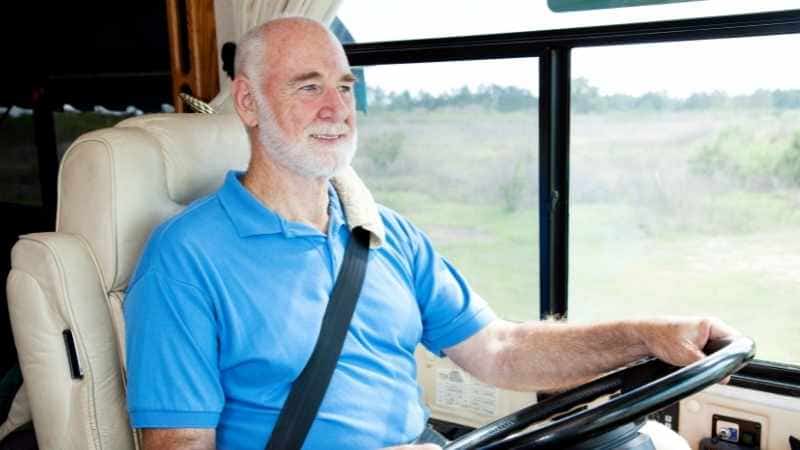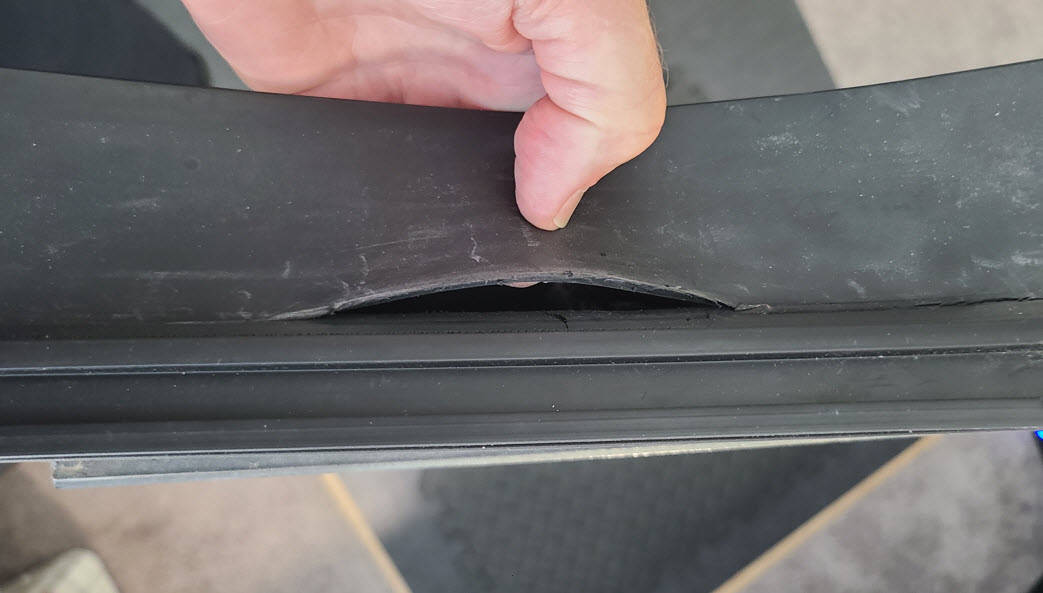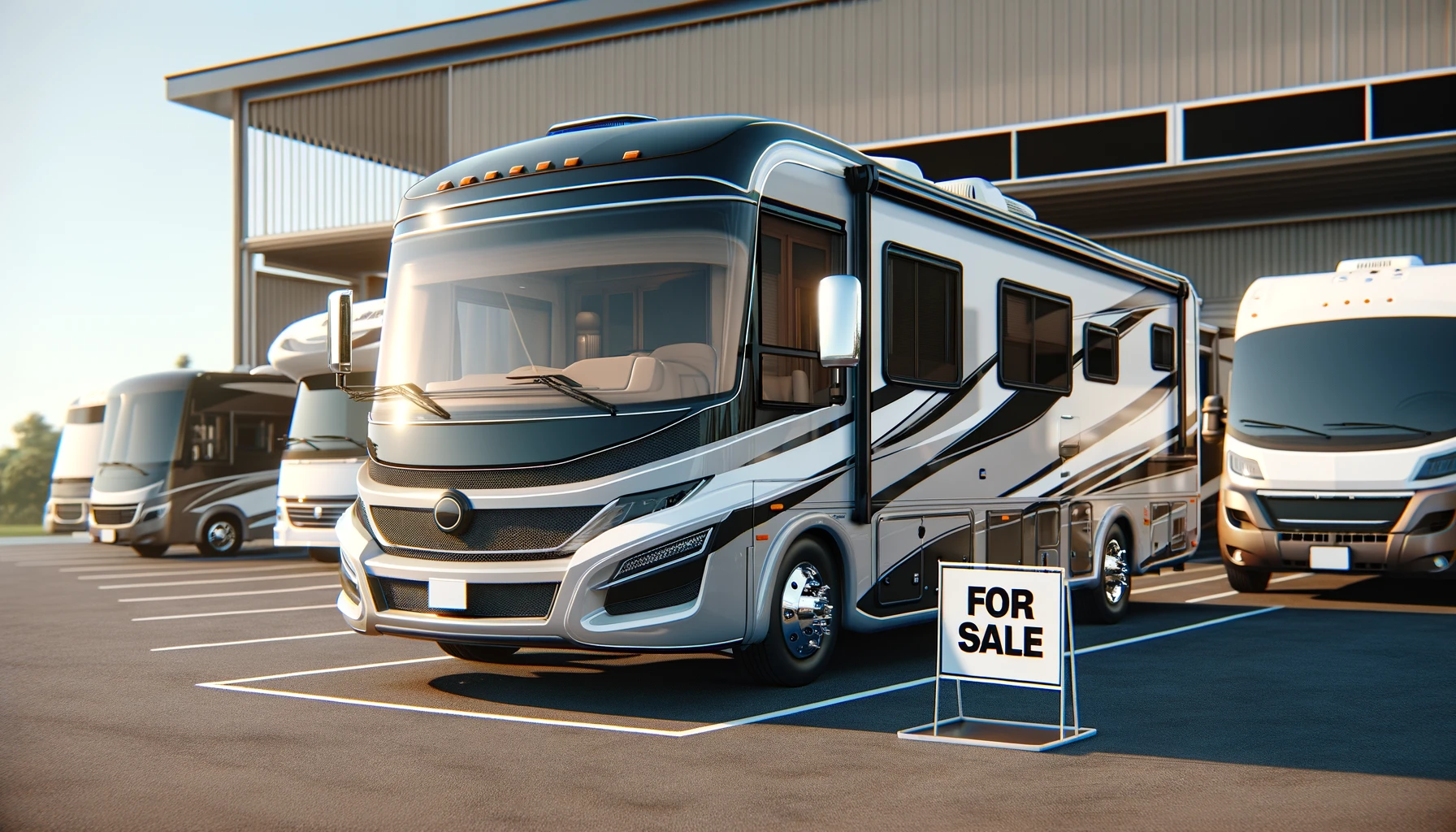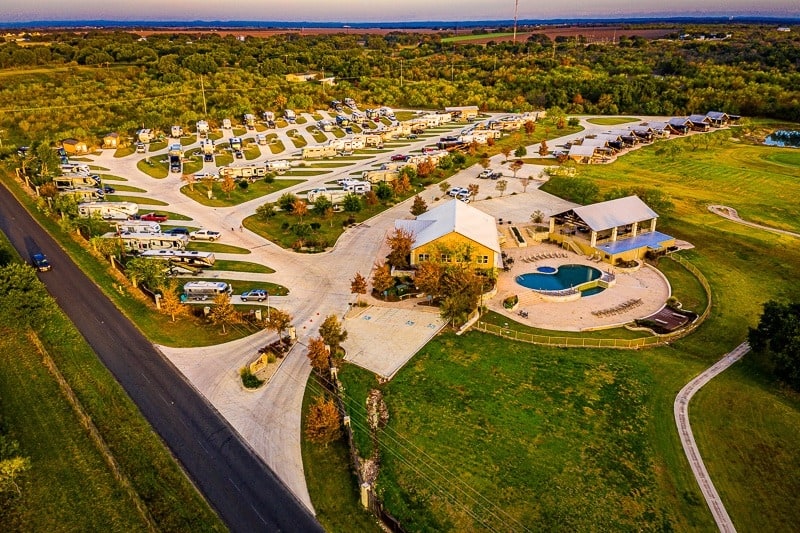When getting an RV there are countless questions one may consider, One question often asked is “Do you need a CDL license to drive an RV?” The answer is “In most states, you do not need a CDL license to legally drive an RV”

Every state has its requirements and restrictions based on the Class of your current driver’s license. So let’s explore this topic a bit more.
Do you need a particular non-commercial driver’s license to drive an RV?
Well, the answer is more than likely no but also maybe. I know, not super helpful, but because the law is different in every state, it is impossible to give a broad, general answer.
Remember, laws are constantly changing, and while our article may be correct today, the laws could change tomorrow, so please check with your state’s DMV before you purchase your RV to make sure you are driving legally.
Almost all DMVs have the requirements listed on their website, so a simple online search should give you the needed info.
Let’s start by breaking down the different types of driver’s licenses available to drivers on the road now:
- Class A CDL
- Typically required for driving semi-trucks, 18-wheelers, and tractor-trailers
- Class B CDL
- Typically needed to drive a large bus, box truck, construction vehicles, etc.
- Class C CDL
- Typically required for vehicles with 15+ passengers or for individuals who wish to transport hazardous materials
- Class D
- The basic driver’s license you use every day to drive your car or SUV
- Class E
- Typically covers non-commercial vehicles with a weight of 26,000 lbs
This list is not complete. We tried to stick to the class types relevant to this article and not all types for all drivers.
Do you need a class A Commercial Driver’s License to Drive an RV?
More than likely, you do not. Most states do not require you have more than a basic Class D license for driving your RV simply because CDLs are required for vehicles over 26,000 lbs, and it is unlikely your Class B or C RV/travel trailer is over that weight limit. If you’ve chosen to go with a larger Class A RV, you may need to keep reading.
Why are CDLs required at all?
Honestly, driving large vehicles is not at all like driving your small car or even a large SUV. For vehicles, over a certain weight limit (usually 26000 lbs) it is important that you understand the many ways driving this vehicle will be different than driving the average car.
Requiring a CDL is a way for the state to know you’ve had some training and are considered a safe, knowledgable driver for yourself and the others who share the road with you.
RV Weight and what it means to you
If your RV, plus the weight of anything you’re towing, exceeds 26,000 lbs, you’re likely to need a specific driver’s license to drive it.
That may not necessarily be a CDL, however. Some states have non-commercial specialized licenses for RVs.
It is also important to note that you’re only bound to the laws of your state. If you live in Oklahoma, a state that does not require a special license to drive an RV, regardless of size (as long as it is not being used commercially), and you drive your RV to Wisconsin, which has different laws, you should not fear getting ticketed.
What are the CDL RV requirements for my state?
Well, I’m glad you asked. I took the time to scour the internet and 50 different DMV websites to bring you an up-to-date list of state requirements, at least up to date as of the date this article was written.
Please note, these rules, regulations, and requirements are based on NON-COMMERCIAL use of your RV. If you plan to use the RV commercially, this list does not apply to you.
Without further ado, check the list below:
- Alabama – No CDL restrictions for RVs
- Alaska – No CDL restrictions for RVs
- Arizona – No CDL restrictions for RVs
- Arkansas – if your vehicle weighs over 26,000 lbs
- California – Non-commercial Class A (which does require a safety check, a pre-trip inspection, a skills test, a driving test, as well as a health questionnaire) for anything weighing over 10,000 lbs that is not used commercially
- Colorado – No CDL restrictions for RVs
- Connecticut – No CDL restrictions for RVs
- Delaware – No CDL restrictions for RVs
- Florida – No CDL restrictions for RVs
- Georgia – No CDL restrictions for RVs
- Hawaii – CDL is required for motorhomes over 26,000 lbs.
- Idaho – No CDL restrictions for RVs
- Illinois – Non-commercial Class B for motorhomes over 16,000 lbs
- Indiana – No CDL restrictions for RVs
- Iowa – No CDL restrictions for RVs
- Kansas – Requires non-commercial Class B license for motorhomes over 26,000 lbs
- Kentucky – No CDL restrictions for RVs
- Louisiana – No CDL restrictions for RVs
- Maine – No CDL restrictions for RVs
- Maryland – Requires a non-commercial Class B license for motorhomes over 26,000 lbs
- Massachusetts – No CDL restrictions for RVs
- Michigan – No CDL restrictions for RVs as long as they are not used commercially
- Minnesota – No CDL restrictions for RVs
- Mississippi – No CDL restrictions for RVs
- Missouri – No CDL restrictions for RVs
- Montana – No CDL restrictions for RVs
- Nebraska – No CDL restrictions for RVs
- Nevada – will require a non-commercial Class A or B license.
- New Hampshire – No CDL restrictions for RVs
- New Jersey – No CDL restrictions for RVs
- New Mexico – You’ll need to apply for a Class E (CDL Exempt) license
- New York – requires a class D or Class E non-commercial license with an R (Recreational) endorsement for RVs weighing more than 26000 lbs
- North Carolina – No CDL restrictions for RVs
- North Dakota – No CDL restrictions for RVs
- Ohio – No CDL restrictions for RVs
- Oklahoma – No CDL restrictions for RVs
- Oregon – No CDL restrictions for RVs
- Pennsylvania – Requires a non-commercial Class B license for RVs over 26000 lbs
- Rhode Island – No CDL restrictions for RVs
- South Carolina – A class E driver’s license is required for all RVs over 26,000 lbs.
- South Dakota – No CDL restrictions for RVs
- Tennessee – No CDL restrictions for RVs
- Texas – Requires a class A or B non-commercial license for RVs over 26000 lbs
- Utah – No CDL restrictions for RVs
- Vermont – No CDL restrictions for RVs
- Virginia – No CDL restrictions for RVs
- Washington – No CDL restrictions for RVs
- Washington DC – CDL is required for motorhomes over 26,000 lbs.
- West Virginia – No CDL restrictions for RVs
- Wisconsin – A CDL is required if the RV is longer than 45 feet
- Wyoming – A non-commercial Class C license is required for RVs over 26,000 lbs
Purchasing an RV is an exciting time and you may not have thought about the changes it may require to your driver’s license.
While you’re out shopping be sure to ask the size of any RV you look at so you will know what restrictions if any, you’ll need to keep in mind after the purchase.
If you aren’t a fan of restrictions or babysitting laws, then we suggest getting something small enough to avoid the need to do so.
Bigger is not always better. Drive whatever you’re most comfortable in (and completely legal doing so) and have a great time doing it!



